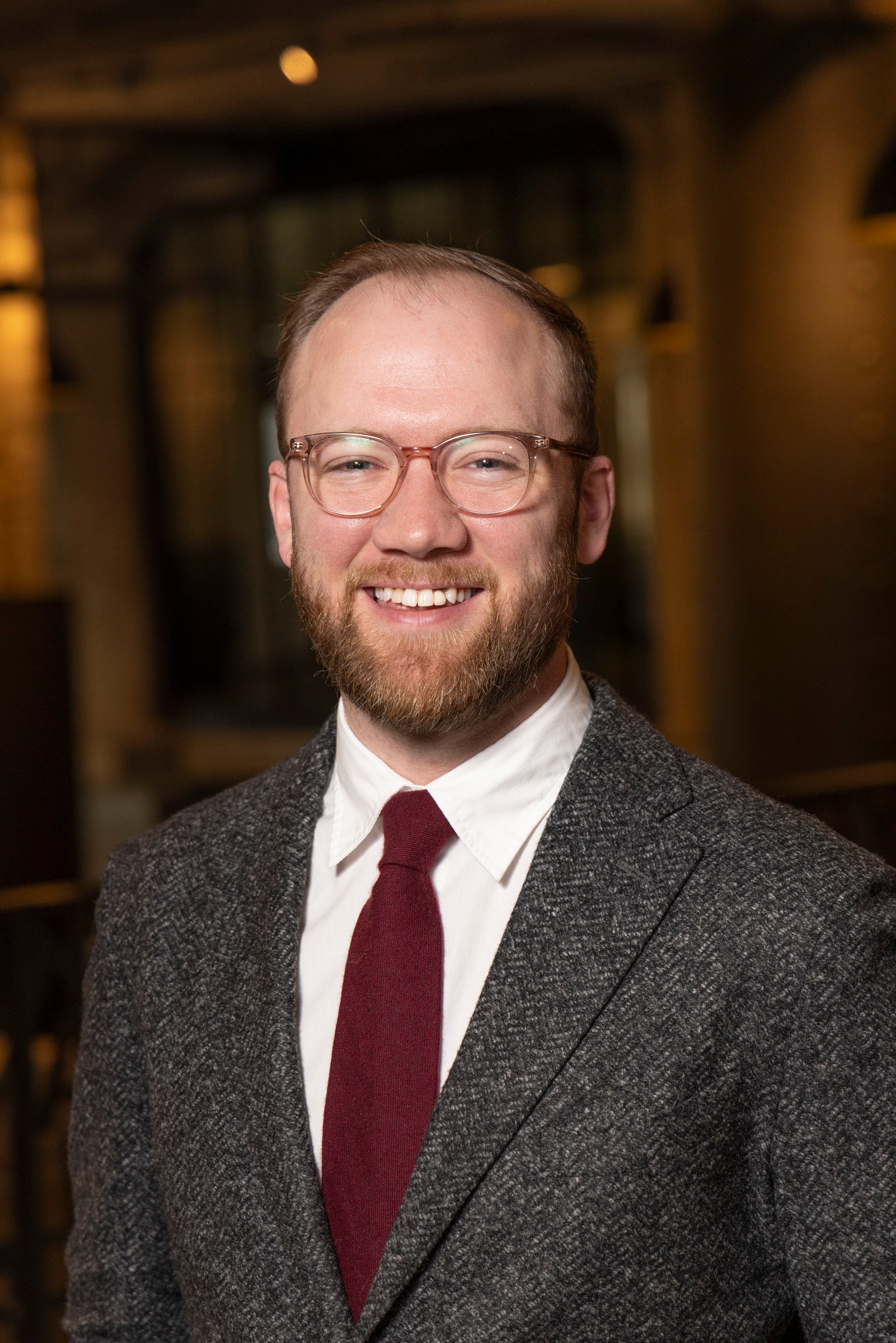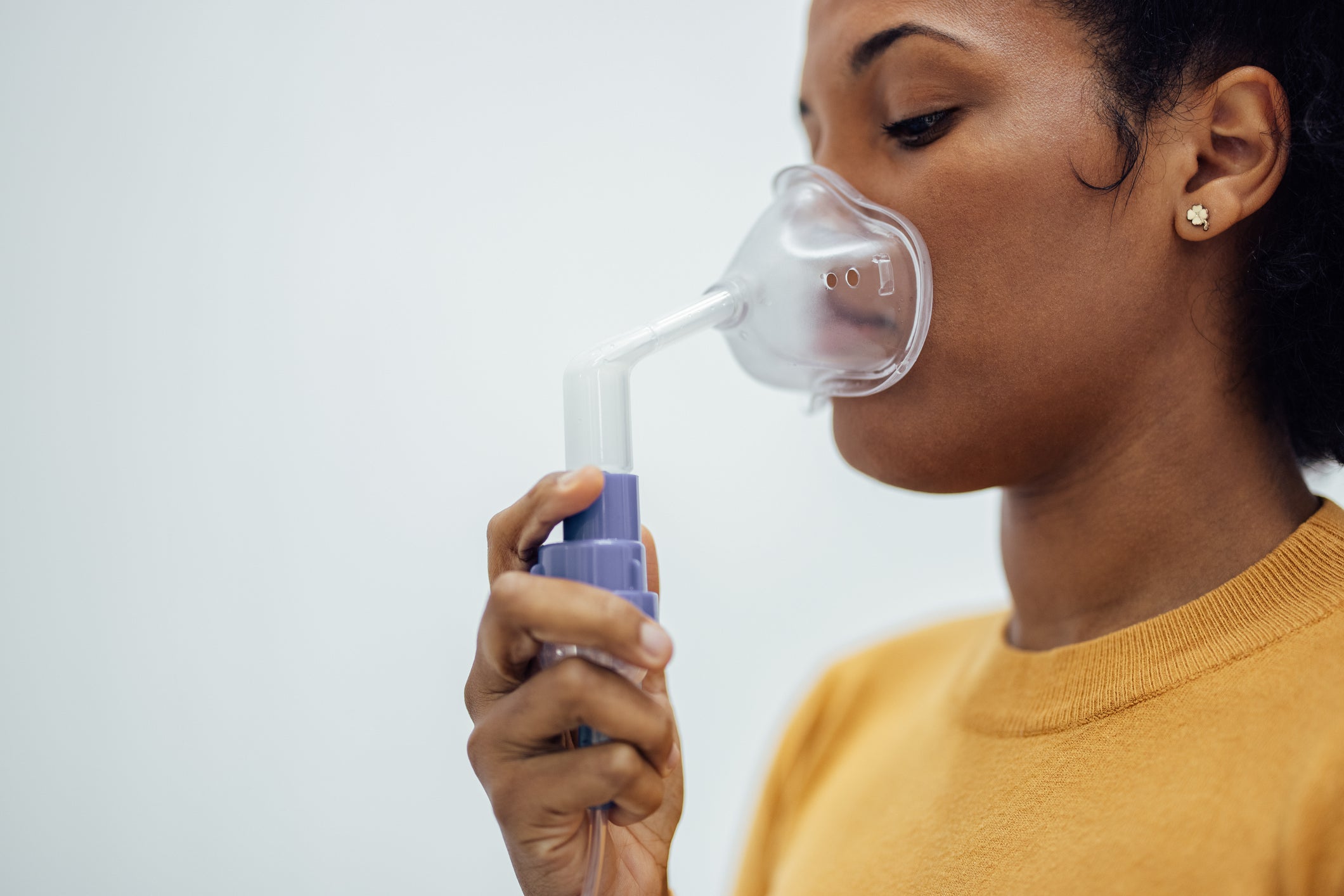Exploring the health effects of stigma against LGBTQ people

Landon Hughes is a Yerby Fellow at Harvard T.H. Chan School of Public Health, and a postdoctoral research fellow in the Division of Chronic Disease Research Across the Lifecourse (CoRAL) at the Department of Population Medicine, a collaboration between Harvard Medical School and the Harvard Pilgrim Health Care Institute. He recently spoke about his path into public health, his recent study on youth accessing gender-affirming care, and how he almost made it onto the hit TV series The Voice.
Q: What was your path into public health?
A: I grew up in a working-class suburb of Detroit, and my sister and I were the first ones in our family to go to college. I’d been interested in fundraising work and other projects that made an impact in people’s lives, but I didn’t really think that an academic career was for me. I studied political science and sociology at Grand Valley State University [in Allendale, Mich.], and became fascinated with the ways public policy shapes folks’ lives.
After college, I worked at RTI International [a nonprofit research institute] as an analyst working on implementation of Affordable Care Act programs. I fell in love with the work, because it combined quantitative skills that I was excited about gaining, and the qualitative research I’d already been doing, in a way that was meaningful and made a difference. It also scratched my policy itch because we were thinking about how public policies were shaping practice in health care.
It was also when I decided to focus on sexual and gender minority health. We were implementing quality measures from the government [used by the Centers for Medicare & Medicaid Services to help determine provider payments]. Physicians have to report how often their patients receive certain types of care, and I was implementing a measure on the number of patients getting mammograms. During this process, we started getting questions about whether trans women should be included in the sample. The answer is yes according to current screening guidelines, but at the time trans women weren’t formally included in the measure. I looked into this question and wound up publishing my first peer-reviewed paper on adapting health care quality measures to meet the needs of trans people.
That got me thinking about other ways in which gender interacts with policy. I then joined a community advisory board at Fenway Health, an LGBTQ health center in Boston, and then decided to pursue my PhD and further my research on LGBTQ populations.
As a student at the University of Michigan School of Public Health, I was mentored by Arline Geronimus, [SD ’85] who is known for her work on how the stress of racism and stigma can prematurely age people. And now I work with Brittany Charlton at Harvard Chan School, studying LGBTQ health. As a first-generation student trying to navigate the academy, I’m forever indebted to them and the whole host of other folks who pulled me along, including my PhD advisor Kristi Gamarel and my undergraduate advisors, Darren Walhof, Rachel Campbell, and Jennifer Stewart.
Q: Why did you decide to apply for a Yerby Fellowship at Harvard Chan School? How has your experience been so far?
A: I applied for the fellowship to work with Brittany, who focuses most of her research on LGBTQ populations. She’s also affiliated with the Department of Population Medicine at Harvard Medical School and Harvard Pilgrim Health Care Institute, so I knew that through working with her I would have access to health insurance claims data—my methods area of expertise.
The Yerby Fellowship Program is phenomenal. You’re provided with the resources and environment you need to be successful at Harvard and are part of a supportive community. I’ve now had several of my mentees apply for the program, so it’s exciting to think about how they would be supported in their work and transition to independent research careers if they are able to participate in the program. It’s an honor at this stage in my career to begin opening doors others held open for me.
Q: You recently published a study focused on the rate of U.S. adolescents accessing gender-affirming care. Why did you choose that subject and what did you find?
A: There hadn’t been any prior peer-reviewed studies on the topic, particularly on access to puberty blockers and hormones. This was an important question to answer, particularly because we’re hearing a lot of misinformation in the public conversation, for example, that kids are getting hormones in school. So, we saw it as an opportunity to put numbers behind what we knew was really happening on the ground—that not all trans or gender-diverse kids want or need access to gender-affirming care, and that those who do want it face a lot of roadblocks.
Our study found that less than 1 in 1,000 minors received puberty blockers or gender-affirming hormones [during the 2018-2022 study period], and that no kids under 12 were prescribed hormones. We used private insurance claims and identified transgender or gender-diverse patients based on a gender dysphoria diagnosis. The limited data environment for transgender populations requires using this sort of approach.
Without better data, it’s hard to research the consequences of gender-affirming care bans in the U.S., but we know from interviews with youth and their providers and families that restrictions are going to make kids’ lives much harder. Many youth have been accessing this care for years, and their classmates may not even know that they’re trans. They may suddenly start experiencing a puberty that they hadn’t experienced before. That’s incredibly distressing and socially isolating for them. And the bans aren’t just disrupting youth. They are disrupting their families and communities—we’ve seen parents fleeing states where bans are in effect to ensure their children can access the care they need. We expect that transgender folks are going to experience heightened stigma and discrimination because of the enactment of restrictive laws.
Q: What’s next after your fellowship ends?
A: I’ll be joining the faculty at Harvard Medical School and the Harvard Pilgrim Health Care Institute in the Department of Population Medicine in July. Big picture, I’m most interested in continuing to conduct research that looks at stigma and its effects on LGBTQ populations, whether that’s directly on our bodies, like work I’m doing on cardiovascular disease risk and aging populations, or inability to access care that we need.
From my view, gender-affirming care is being politicized because of the stigma against LGBTQ populations and misunderstandings about the lived experiences of people who are LGBTQ. This stigma has consequences for our health.
Quick hits:
Favorite way to unwind: Playing with my dog. I have a three-and-a-half-year-old Shiba Inu named Elio. This breed is very curious and smart, but also very stubborn. Taking him for walks and showing him the city is a really nice way to unwind and get me outside.
Hidden talent: I was a singer-songwriter in another life. I almost made it on The Voice. In 2013, I got through the first few phases of the audition process, and I was really close to making it onto the show. In the next few years when my partner and I can afford a bigger place to live, I hope to have a piano and play again.
TV recommendation: The Traitors. I recommend it to anyone who needs a show where you can turn off your brain. It’s basically the game Mafia [where “bad” players secretly murder “good” players, who then have to identify and vote out suspects] with B-list celebrities, and it’s hosted by Alan Cumming, who has the most fabulous outfits.


